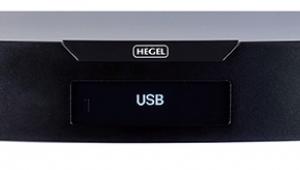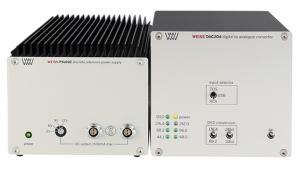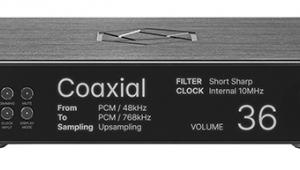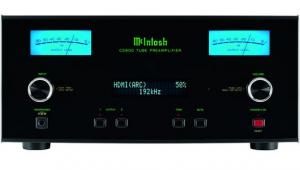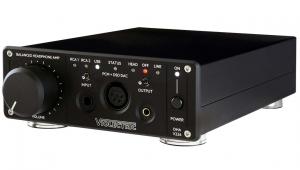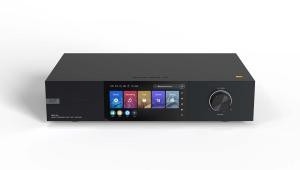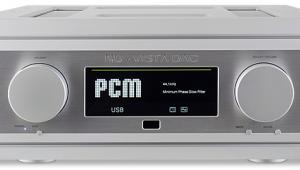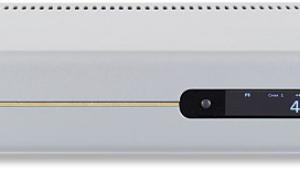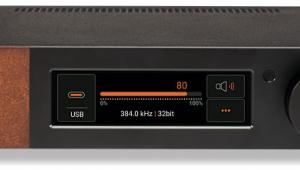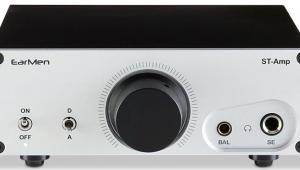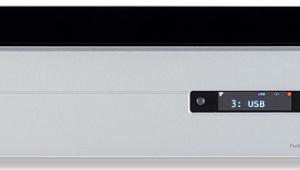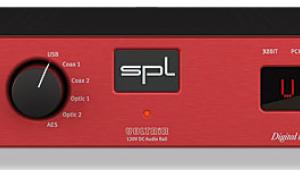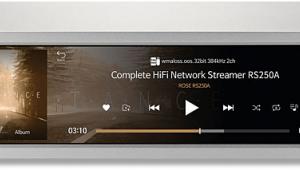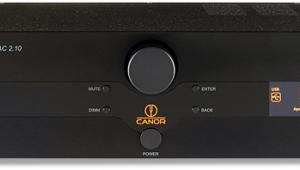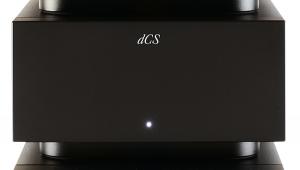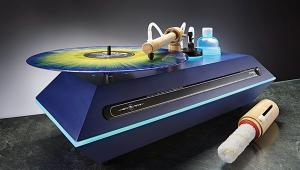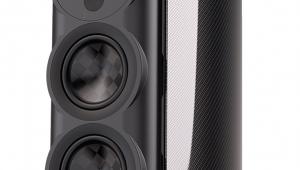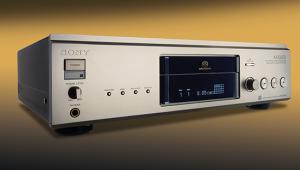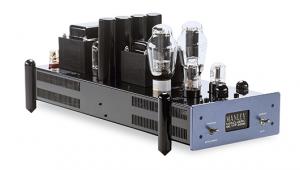Auralic Sirius G2.1/Vega G2.1 Upsampler/DAC Page 2
Extra Slam
More subtle were the gains when running DSD64 files through the Sirius G2.1, but they were there to be had. Playing a rip of The Velvet Underground & Nico in DSD64 [from Polydor UIGY-9608] showed the upscaling in the Sirius G2.1 was making the 1967 mix a little more explicit without trading any of its rawness. By comparison the direct-to-Vega stream was just a little softer and a bit more polite, whether with Nico's vocals on 'Femme Fatale', the snarl of 'I'm Waiting For My Man' or the strangeness of 'Heroin'. In these cases the upsampling processor seemed to bring a little extra drive and expression.
The same benefits were apparent with very different recordings, including the recent box-set release of the complete Brahms symphonies by the Danish Chamber Orchestra under Ádam Fischer on the Naxos label [8574465-67]. Playing the CD-quality version – it's also available as a 192kHz/24-bit download – I thought it sounded just a shade thinner via the Vega G2.1 alone. With the Sirius G2.1 in the chain, however, the music gained both substance and space, not to mention an extra serving of dynamic impact, bringing out more of the interplay between the musicians, and the subtleties of the scoring.
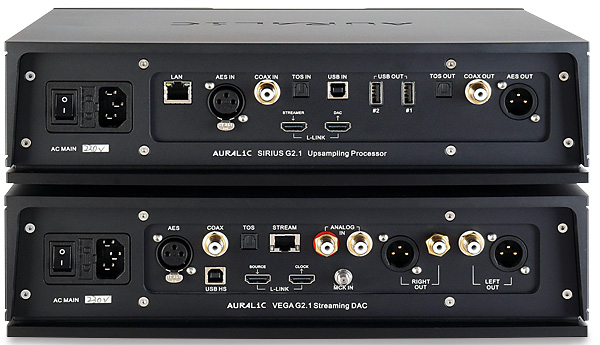
Without a doubt, the Sirius G2.1 is a worthwhile addition if you're going to play music into your Auralic DAC from lower-resolution files, but as you might expect, its effect gets more subtle the higher the incoming data rate. However, it's also worth noting that it's not simply a unit whose use is restricted to an Auralic eco-system – as well as outputting to the likes of the Vega G2.1 via that Lightning Link, it can also feed other DACs via USB, electrical and optical outputs.
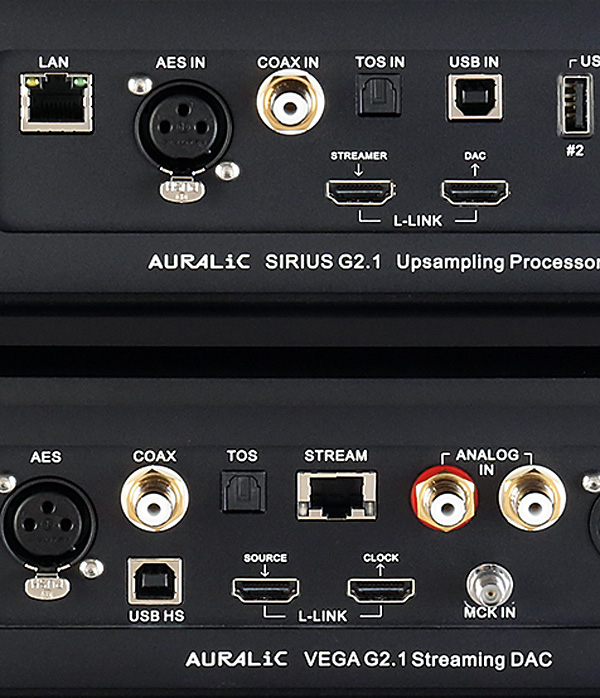
The Entertainer
OK, so the 'conventional' digital outs have the usual limitations – 192kHz/24-bit and DSD over DoP – but using the USB connection opens up a wider range of formats, depending on the DAC you choose to partner with. You can adjust the maximum data rate in the extensive menus of the upscaler, and I spent an amusing few hours playing the Sirius G2.1 through a variety of 'desktop' DACs, from the DSD256-capable Chord Mojo 2 [HFN Apr '22] to the iFi Audio Neo iDSD [HFN Mar '21], which can handle DSD512. Using the Sirius G2.1 between iFi Audio's Zen Stream transport and the Neo iDSD was an entertaining experience – although this hardly qualifies as a typical set-up!
Worth The Weight
Do you need the Sirius G2.1? By now you should have formed an opinion. Given that the Vega G2.1 is already an excellent network player and DAC, with an analogue input which is also very good indeed – as I ascertained using my Naim player via its line-out – and that it can also function as a preamp, you'd be forgiven for thinking just the one box would do you very nicely indeed. Across the time I spent with this Auralic pair, I found the Vega G2.1 a highly entertaining performer across a range of musical styles, not least because that Lightning DS system is so simple and logical in use.
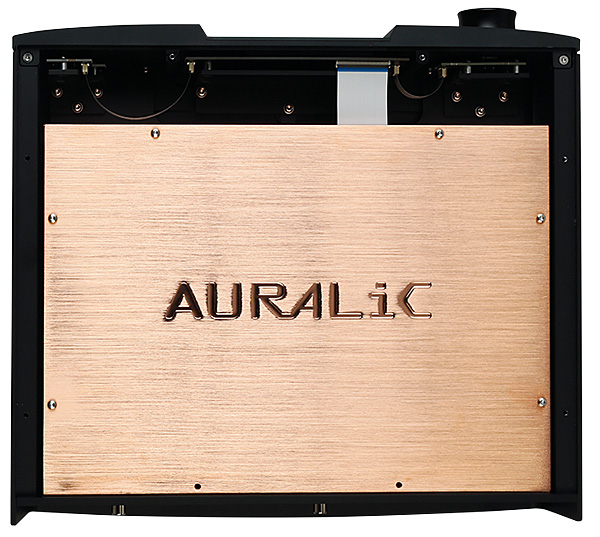
Freed from all the digital frills delivered by the Sirius G2.1 – impressive though they are – the Vega G2.1 has a directness of sound to match its fuss-free operation, combining weight and presence, detail and speed. In my listening, these characteristics were as much in evidence when exploring the baroque jazz-prog wonderfulness of Frank Zappa's Shut Up And Play Yer Guitar set [Rykodisc RCD 10533/34/35] as with the relaxed blues-rock of Snowy White's Driving On The 44 [own label, SWWF 2022], where it delivers a gloriously characterful guitar sound.
So the Vega G2.1 is an accomplished all-rounder, building on the strengths of past Auralic models reviewed in these pages. The large display and heavyweight but oh-so elegant casework ticks the pride of ownership box, ensuring either the Vega or Sirius/Vega G2.1 will fit in with almost any system while delivering a sound that's up there with the very best.
Hi-Fi News Verdict
Whether or not you need this full two-box set-up will be down to your own digital audio system: the Vega G2.1 is a remarkable streamer/DAC in its own right, with a substantial, super-detailed sound and a slick operational interface. But if you are considering additional digital sources, the Sirius G2.1 is a technical tour de force, capable of enhancing almost any audio format with which you feed it.
